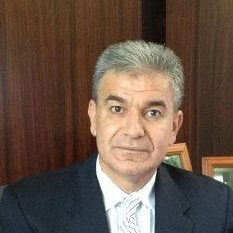 I just arrived back in Sana’a from Riyadh. I want to take this time to share with the Yemeni people, young and old, men and women, about what was achieved at the donors meeting there. While most of the media reports over the last few days focused on the generous pledges by donors, which reached US$6.4 billion, I want to tell you about the commitments made by the government and the international community to make sure this money reaches you - all of you - quickly, transparently, and efficiently.
I just arrived back in Sana’a from Riyadh. I want to take this time to share with the Yemeni people, young and old, men and women, about what was achieved at the donors meeting there. While most of the media reports over the last few days focused on the generous pledges by donors, which reached US$6.4 billion, I want to tell you about the commitments made by the government and the international community to make sure this money reaches you - all of you - quickly, transparently, and efficiently.
In addition to the pledges, the meeting endorsed the Mutual Accountability Framework (MAF) that outlines the commitments of both the Government of National Reconciliation and the donor community during the transition period. I want to explain what this framework is all about. I will be selective and focus on the items that will be of greatest concern to you.
As you will see from reading the MAF, the government has made several important commitments. In this piece I would like to write specifically about governance, and partnering with the private sector and civil society since I know this is of interest to many of you.
In relation to governance, the government has committed to take the necessary steps to investigate high level officials who are involved in corruption. As many of you may know, the existing procedure requires the approval of two thirds of parliament or the president to initiate an investigation of anyone at the rank of Vice Minister and above. This is why no high-level officials were ever investigated. The government has now committed to establish a special court to accelerate the prosecution of corruption cases and to ensure that those convicted serve their sentences. This is a clear message to current high-level officials that they should think twice before engaging in corruption.
On the private sector, the government has committed to improving the business environment to make it easier for small businesses to register, by eliminating red tape and monopolistic practices. The government will also accelerate the completion and submission to parliament of critical new laws on Public Private Partnership in infrastructure (such as building power stations, tunnels, airports etc.), and special economic zones. The first law, if implemented successfully, will relieve some of the pressure on the government budget allowing for increased public expenditures on social needs, such as health, education, and social safety nets, while ensuring that vital infrastructure is built quickly and transparently. The second law will attract investment in manufacturing that will create the desperately needed jobs.
Finally, the government committed to a full partnership with civil society. The government will accelerate the finalization of the Civil Society Organizations Legislation and engage civil society organizations as partners and active players in the transition and the short and medium-term development agenda.
As far as the international community is concerned, we made a commitment to the government to fulfill our pledges swiftly and to allocate the funding to programs identified in the Economic Transition Plan, with each donor identifying within 90 days the sectors they will finance, and to provide the technical assistance and support that will guarantee the government has the necessary capacities to undertake the reforms it has committed to.
The MAF includes other important elements and we will post it here on the web so that everyone can read it.
This is only the beginning.
We are in no way declaring success. Implementing the commitments outlined in the MAF will require a lot of hard work. Talk is cheap and we will only mark achievement when the government and donors fulfill all their obligations. That is why we agreed to establish a monitoring mechanism to monitor compliance by both the government and donors. We hope that this will make the government more responsible and accountable, and ministries will compete to improve services to citizens.
We will meet every three months to assess progress in the implementation of the MAF, and we will invite representatives from the private sector and civil society to be part of the monitoring process. We are also committed to publishing the reports from the monitoring process so that every Yemeni citizen can see them for themselves and form their own judgement.
We will use this blog space and our website to make sure Yemenis have access to this information.


Join the Conversation